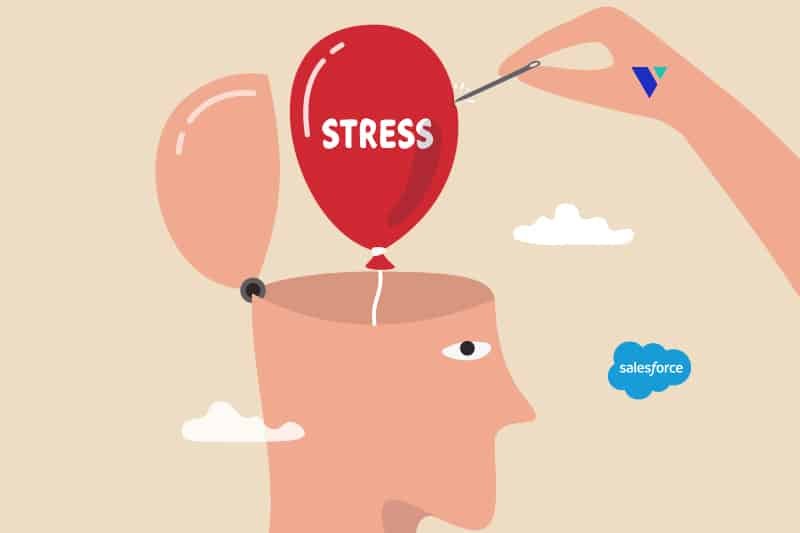The Mental Health Issues That Get Missed in Addiction Treatment

Someone enters rehab with an alcohol or drug use disorder. They successfully complete the program and get sober, yet within a few months, they’ve relapsed. They return to treatment, they get sober, but family groans at the redundance. They’ve failed. The same pattern continues until family members are exhausted, and the person feels ashamed. The cycle continues. The person finds themselves tired and ashamed. They’ve let everyone down. Yet in this scenario, the primary issue has a much larger piece of the puzzle than what’s presumed – the addition is not the sole issue.
Overwhelmingly, those with substance use disorders have mental health complications. From depression and anxiety to PTSD and bipolar disorder, these conditions emerge with substance use but also stand independent of substance use to such an extent that they complicate successful recovery.
The Dual Diagnosis Dilemma
Dual diagnosis refers to the person with a substance use disorder who has another classification of mental illness. The National Institute on Drug Abuse reports that around half of people with severe mental illnesses also have co-occurring substance use disorders and half of people with substance use disorders also have co-occurring mental illnesses. In other words, if someone got sober today, there’s a 50% chance they would be living with someone who simultaneously battles with complications related to mental health.
The issue is that many treatment programs for addiction run under the preconceived notion that substance abuse exists solely. Thus, as long as someone gets clean and has coping skills for cravings, all is said and done. If someone self-medicates alcohol use for years because of unmanaged depression, their alcohol is given it’s taken away but taking it away exacerbates depression. The same goes for anxiety disorders; someone might have started using benzos or abusing alcohol early on to stave off panic attacks or socially interfacing. Taking it away does little because it reveals years of symptoms waiting to emerge.
Why Mental Health Issues are Ignored by Treatment Facilities
There are many reasons mental health conditions are overlooked in the treatment process. For starters, many symptoms are manifestations of substance abuse. As such, withdrawal presents as another mental health condition. A person coming off alcohol will look clinically depressed; someone coming off stimulants may appear as if they have an anxiety disorder. Until brain chemistry stabilizes, it’s challenging to find a clear assessment of someone’s mental wellbeing.
Many facilities don’t have enough staff to adequately provide mentalized care; they may have addiction specialists but no psychiatrists or therapists trained for mood or trauma-based complications to help properly care for patients. They may choose to treat addiction over initially assessing mental complications or taking the two on separately when research suggests that dual diagnosis early on provides optimal outcomes in recovery. A good facility like Rolling Hills Recovery Center will understand that the best approach involves looking at both conditions, mental health and addiction, together.
Getting honest data during an intake interview is vital. Those seeking help for addiction might not comment on their mental health history due to shame, personal sentiment, established relationships with their substances – which suggests they don’t think their chronic anxiety is relevant since it’s how they’ve lived since their young adulthood – or genuinely miss it because it’s what they’ve experienced, but haven’t seen any other way. If someone feels anxious all their adult lives, they may think nothing of it since life is how it’s always felt.
Most Commonly Overlooked Conditions
Depression and anxiety disorders are two of the most common co-occurring no-drug-goal-recovery conditions. However, they are also significantly complicated because substand use problematic behavior leads them to feel depressed and anxious while simultaneously rendering depressive and anxious behaviors substance-use tendencies themselves. It takes time – more than intake assessment – to understand which came first.
PTSD is another critical problem that often goes unnoticed over time. Trauma histories are common among general populations with addictions; however, not everyone’s inclined to link their historical tragedies with their partaking of substances. Military veterans and persons who were abused or sustained tragic losses learn how to cope decades after negative circumstances without someone properly working through the nuances over time to advantage memories and associations which avoid the trigger behaviors induced by substances.
Bipolar disorder is important – especially when diagnoses are undiagnosed. The manic phase complicates substance use as does poor judgment; the depressive phase creates worry. If a professional only relies on an effective approach for substance use for discharge without acknowledging mood cycling when it comes to relapse potential, they leave vulnerable persons in precarious positions.
ADHD has a higher incidence than you’d expect. Impulsivity and emotion dysregulation can cause substance use; stimulants can be used as a form of self-medication or focused necessity and without diagnosis and subsequent remediation efforts for sobriety success chances.
What Integrated Treatment Looks Like
The co-occurring disorder’s standard operates through integrated care; essentially treated concurrently with coordinated efforts means that mentalized professionals must also be available during treatment. But it’s more than having someone there – for both approaches to be understood.
Integrated treatment entails a psychiatric assessment upon intake; med management if necessary; therapy focuses on addiction aspects plus the underlying issue. Staff members communicate interdisciplinary efforts so everyone’s aware.
Medications are integrated differently; those who transition onto antidepressants might need appropriate assessment for their addiction history in addition to generalized pharmaceutical help. Someone needs to be monitored if substantiated help is inappropriate.
Therapy also differs via integrated treatment with trauma considerations because of baseline efforts for addiction care and counseling necessary first responders instead of purely psychological concerns that get tailored for what’s actually going on vs what’s assessed on paper.
What Happens When They’re Missed?
Mental health conditions left undiagnosed in the addiction fight create predictably frustrating outcomes. Relapse rates skyrocket; the amount of time between discharge and relapse declines. Increased compounded psychological feelings of failure abound for persons who refuse even to attempt treatment because it’s clear they’re set up for an impossible task – remaining sober without effective help compounded by poor mental reaction.
There’s also substitution efforts – someone stops drinking but starts abusing RX drugs or someone stops using but has become an eater or gambling addict – all because the underlying precursor – the mental illness that created urgency in the first place – never got properly assessed so it finds new avenues.
Families suffer just as much – watching someone go through professional treatment despite their efficacy without observed longitudinal programs become frustrating disappointments over time; families fail to realize why their loved ones “can’t just stay clean” when a professional suggested everything was okay when in reality (and not externally obvious) it was not.
Moving Forward
Anyone seeking addiction care should have access to dual diagnosis efforts with established integrated care; observations like “how do you discern co-occurring patterns” or “what happens if a person needs both simultaneously” determines whether other facilities have adequate resources from the start to sustain long-term employment for all involved.
For those who never attempted effective programs before, exploring this angle makes sense based on longitudinal results achieved over time. Getting historical results from an assessment separate from intake determinations could provide what’s missed effectively in prior programs because it’s hard to otherwise diagnosed acknowledge these involved arenas independently without linking back to substances – when that’s the unfortunate reality.
The field gets better at recognizing dual diagnosis efforts but there’s a gap between best practices and what’s offered out there at countless facilities not acknowledging such tendencies. Assuming both spheres exist – and demand recognition for successful treatment – can be worlds better than another relapse over effective sobriety and sustained time with integrative efforts.




